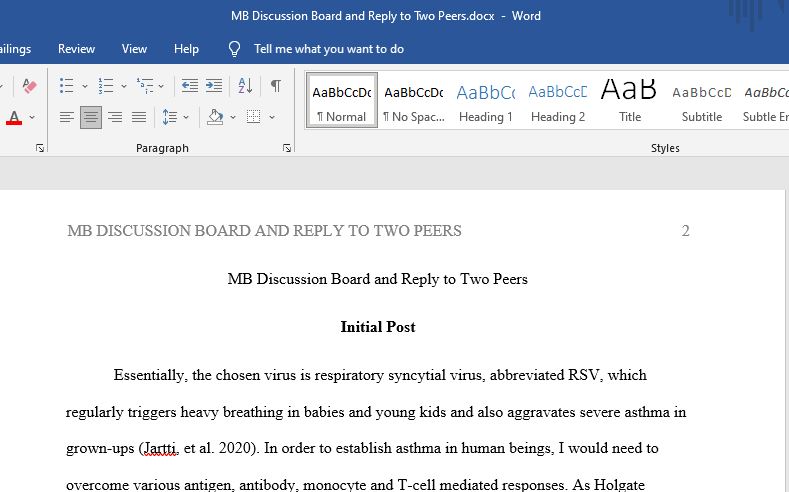Imagine yourself to be a virus and you need to establish infection in an organ of your choice.
- Discuss the innate and adaptive immune responses, including the roles of neutrophils, monocyte, macrophages, antigen, antibody, and B and T-cell mediated responses, that you will need to overcome along with their attributes to establish the infections and the type of immunodeficiency you will be benefited by
Reply to peer 1:
This unit we will be discussing the innate and adaptive immune responses, roles of neutrophils, monocyte, macrophages, antigen, antibody, and B and T-cell mediated responses. And what we would need to overcome along with their attributes to establish the infections and the type of immunodeficiency of Varicella Zoster Virus. Varicella also known as chickenpox, is an acute infectious disease. It is caused by VZV, which is a DNA virus that is a member of the herpesvirus group. VZV can also cause shingles later on in life, most shingles cases last from 3 to 5 weeks. After the VZV initially reactivates, you may feel a tingling, burning, numb, or itchy sensation under your skin. A positive VZV IgG result indicates the presence of antibodies to varicella zoster virus. The test cannot distinguish between past infection and current infection though, so a positive result could indicate active infection and not immunity. The relative range to use is virus is:
<135.00 Negative – Antibody not detected 135.00-164.99 Equivocal ≥165.00 Positive – Antibody detected
Reply to Peer 2:
The Hepatitis C virus (HCV) enters the body through blood contamination, such as a needle prick. HCV affects the liver and causes inflammation of the liver, Hepatitis C, cirrhosis, and hepatocellular carcinoma. HCV impairs the adaptive immune response by developing escape mutations in neutralizing antibodies and T-cell receptor recognition sites and inducing cytotoxic anergy and deletion. The human body has evolved multifaceted mechanisms to sense HCV infection and release defense responses. Infected monocytes and macrophages continuously produce HCV. HCV may benefit from reduced replication, which would limit T-cell recognition, and permit prolonged survival of the virus.
Reference
Larrubia, J. R., Moreno-Cubero, E., Lokhande, M. U., García-Garzón, S., Lázaro, A., Miquel, J., Perna, C., & Sanz-de-Villalobos, E. (2014). Adaptive immune response during hepatitis C virus infection. World journal of gastroenterology, 20(13), 3418–3430. https://doi.org/10.3748/wjg.v20.i13.3418
Answer preview:

word limit:227
